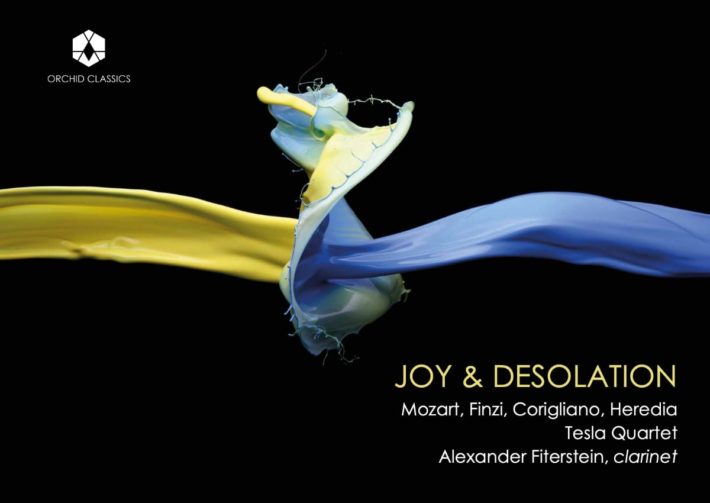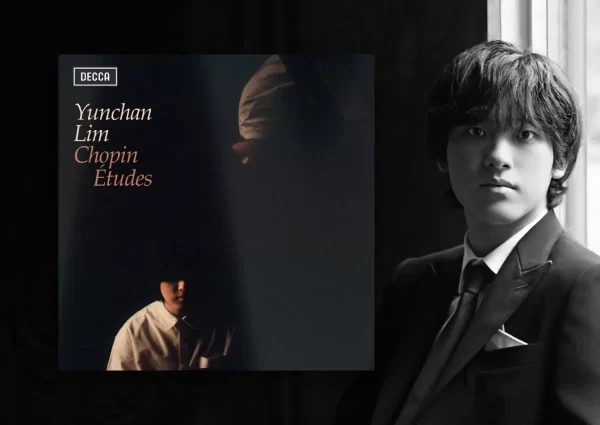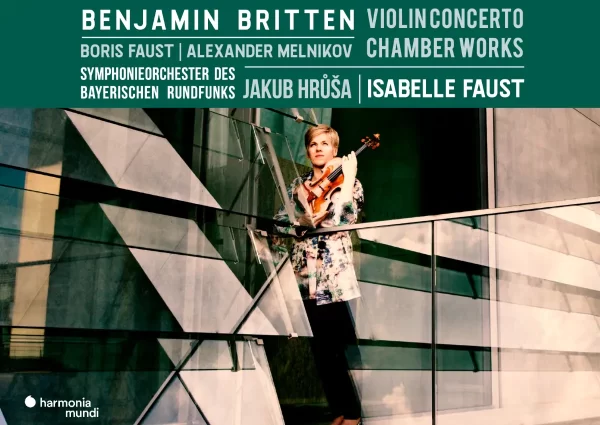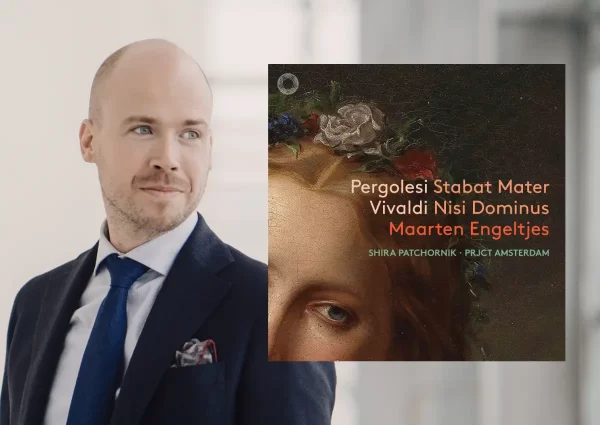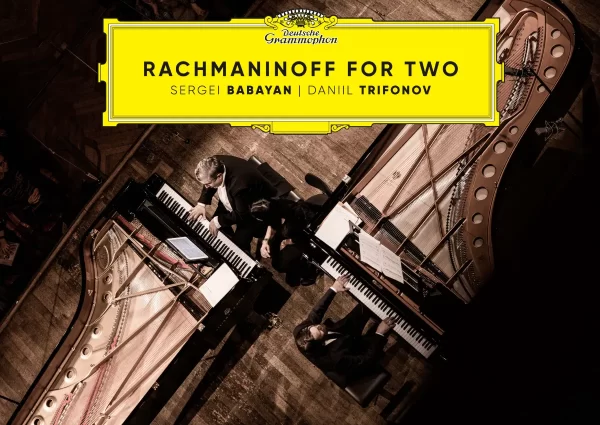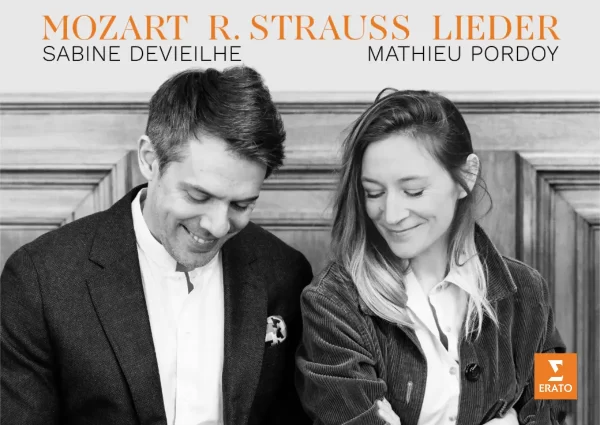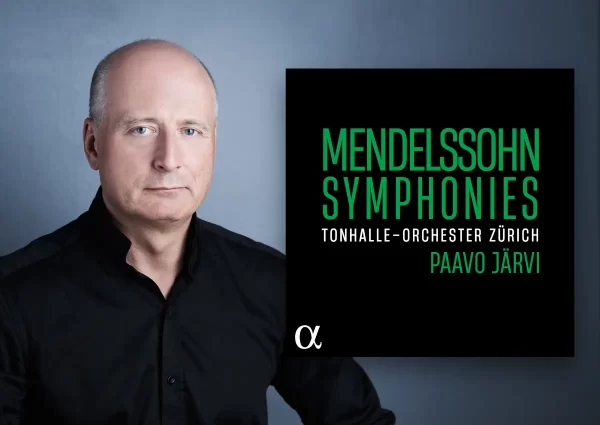In this recording, the Tesla Quartet returns to the studio with clarinetist Alex Fiterstein to make their second album. Their first, with string quartets of Ravel, Stravinsky and Haydn, won them acclaim for their rich sound and fine-tuned interpretations. Here they take on the works of two joy-filled composers, W.A. Mozart and Gerald Finzi, and contrast their music with the more desolate sound worlds of two living composers, John Corigliano and Carolina Heredia. The album is aptly titled “Joy and Desolation”.
Indeed, it’s difficult to listen to this rendition of Mozart’s Clarinet Quintet without a smile. From the outset, the quartet plays as a single instrument. Their sound is balanced across registers, their timbres and articulations matched. Fiterstein’s entrance is organic and earthy, not bubbling like many clarinetists but instead rising smoothly — leavening, perhaps. The development is no less rich in flavor as the instruments trade thematic material. One persistent criticism of this rendition begins to take shape in this movement, though: the tone color is not quite varied enough throughout the music. Yes, every bar of Mozart is beautiful, but not every bar needs to be legato. This group’s rich tone and connected phrases become a bit monotonous. Where is the levity of Romain Guyot’s rendition? Where are Martin Fröst’s beautiful pianissimos and notes suspended in midair?
The Larghetto and Menuetto, for this reviewer, suffer a similar fate (tracks 2 and 3). Tesla and Fiterstein choose a slower tempo in the Larghetto, which requires absolutely expert phrasing to pull off. They don’t quite pass muster, with slightly limp melodies and long harmonic extensions that fail to build tension. The recapitulation of the melody feels rather pedestrian. In the Menuetto, there is more spirit and tension, but once again their phrasing feels underdeveloped. Listen to Guyot’s dance and how each melodic phrase stands alone. Two bars, two bars, four bars, repeat. Separation is key. Fiterstein and Tesla do make a nod to this separation, but for whatever reason it feels irresolute; maybe the studio is too resonant, or the phrases don’t taper enough at the ends, or the staccato notes are not quite short enough. The Trio is similar, though here Tesla’s unity of tone and Fiterstein’s gorgeous low register more than make up for quibbles about interpretation.
The Finale (track 4) brings back the good stuff, if at a tempo that feels a half-tick too moderate. The strings show off their personality in the variations, playing with a determination and forthrightness that the rest of the piece lacks. You have to feel some pleasure listening to Fiterstein switch between presto arpeggios and sophisticated andante lines. The closing variation is deftly approached and finally kicks things into gear. Nothing dazzling here, but certainly a joy.
With Gerald Finzi’s 5 Bagatelles, the listener gets a first taste of sadness, or even pain. The first movement (track 5) is pastoral and serves well as a transition from the Mozart; its middle section is reminiscent of Wagner’s Sigfried Idyll, and the group certainly sounds serene and at peace. Then the music becomes reflective, and here Tesla starts to show a dark side. The Romance (track 6) brings all sorts of new tonalities into the album, and the strings correspondingly bring new colors. Listen to the minor sonorities around 1’00”, and the melodic recap at 2’54” — here are the quiet, mature sounds not found at all in the Mozart. The Furlana (track 8) is similarly rich in veins of harmony and color. Then the finale catapults back to spontaneity, virtuosic playing and bubbling joy.
Corigliano’s Soliloquy began as the middle movement of his Clarinet Concerto, and we hear it here arranged by the composer for clarinet and string quartet (track 10). Michelle Lie, one of the Quartet’s violinists, shares the soloist responsibilities with Fiterstein. The music is desolate, but not quite devastating. The climax at 6’10” falls too gently back to the theme at 6’22”. Fiterstein and Lie can’t quite combine their tone into something ghastly. It felt odd to have Lie far away from her microphone but Fiterstein close to his.
Heredia’s Ius in Bello (Wartime Law) is more desperate (track 11). Here, the group must depict a pain-racked world (the opening spiccatos, the screaming triplets), but also must submit a plea for peace. Fiterstein’s flutter-tonguing is guttural and his harmonics downright frightening. Tesla’s playing in the painful sections is sharp and articulate. In the quiet moments, they are again open and empty without being overly emotional, moderating their vibrato and keeping individual melodic lines from sticking out of the texture.
The overall effect of this album is dampened by the separation of the joy and desolation; it might be an interesting adventure to mix up the Mozart and the other pieces. Happily, the ensemble’s tone is faithfully recorded, and the playing is technically flawless throughout. Even those with full listening playlists should give this recording a listen, and slot in their favorite tracks where appropriate.

“Joy and Desolation”
Mozart – Clarinet Quinet, K.581
Gerald Finzi (arr. Alexander) – Five Bagatelles
Corigliano – Soliloquy
Heredia – Ius in Bello
Alexander Fiterstein – Clarinet
Tesla Quartet:
Ross Snyder, Michelle Lie – Violins
Edwin Kaplan – Viola
Serafim Smigelskiy – Cello
Orchid Classics, CD ORC100106
Recommended Comparisons
Read more classical music reviews or visit The Classic Review Amazon store
Follow Us and Comment:
Get our periodic classical music newsletter with our recent reviews, news and beginners guides.
We respect your privacy.

